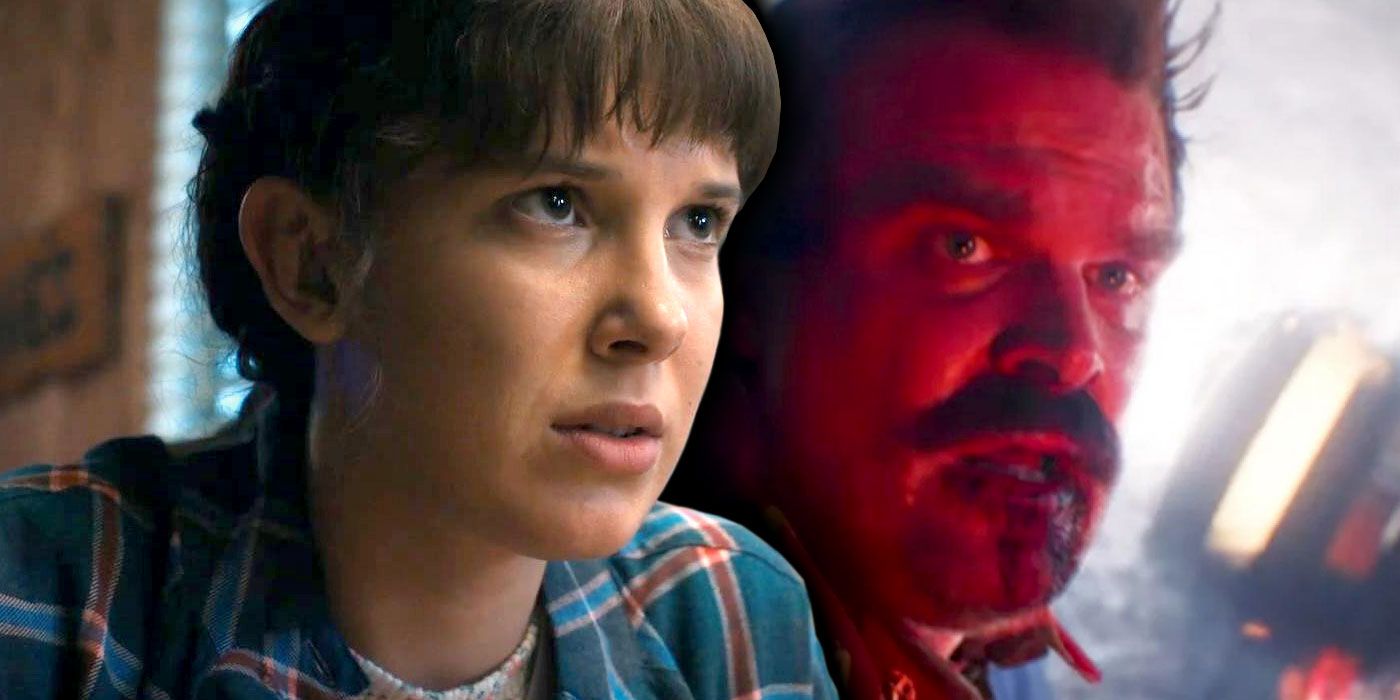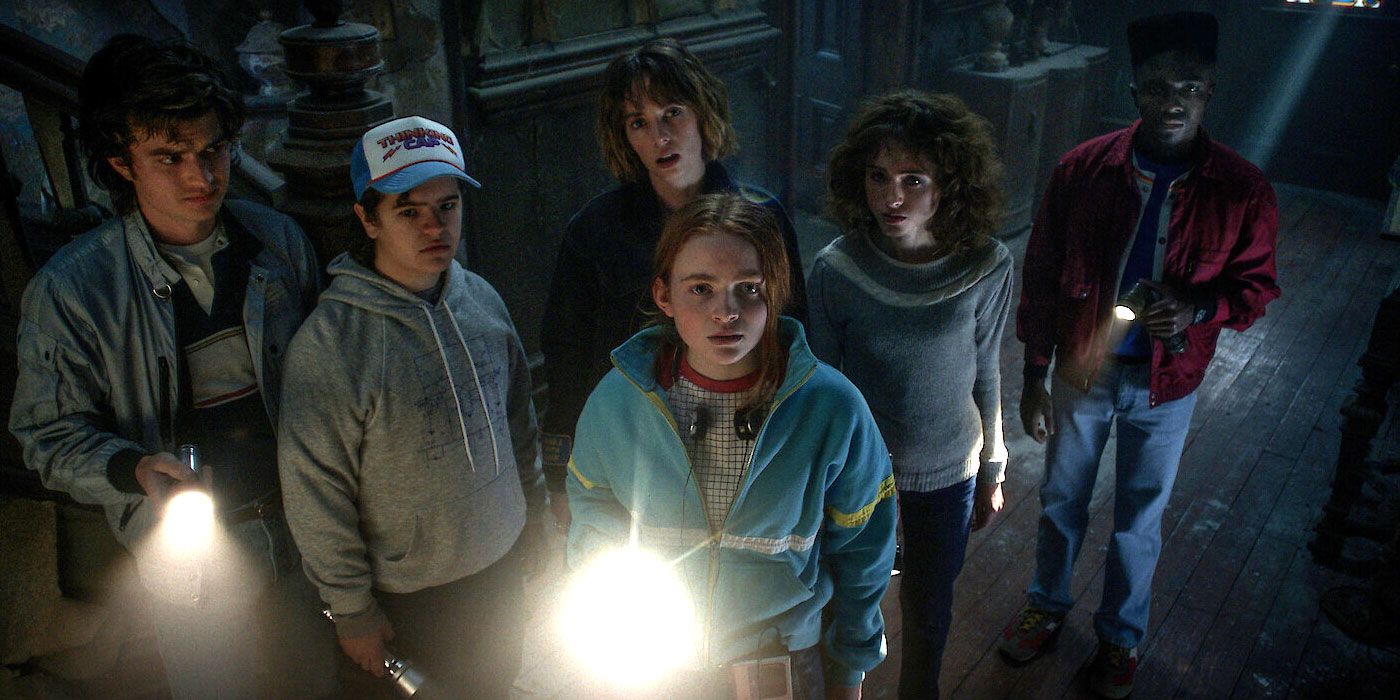The new trailer for Stranger Things season 4 sent a ripple of excitement across the internet when it was released, but it also seems to completely undercut the emotional impact of the previous season’s perfect finale. Audiences are clearly excited for Stranger Things season 4, but the ongoing popularity of Stranger Things hurts its own storytelling. Stranger Things season 3 told a messier story than the show’s original season, but it had a strong finish, with some emotional moments that seemingly closed the final chapter of the story—at least for the kids of Hawkins. Unfortunately, it seems like every meaningful moment from that finale is now being undone.
Following its premiere in the summer of 2016, Stranger Things became an instant classic. It was lightning in a bottle, with a combination of striking cinematography, emotive acting, and carefully crafted storytelling, and the show has remained popular ever since. The plot in the first season of Stranger Things is so carefully woven that critics and essayists have spent hours unraveling all the ways in which it works so well. With prominent homages and references to the styles of famous 1980s movies and storytellers, Stranger Things wedged itself firmly into its audience's imaginations. Since then, no show has managed to capture the same magic found in the first season of Stranger Things—not even the later seasons of Stranger Things.
Debatably, Stranger Things' main problem is that it has become too popular for its own good. The ending of each season has felt climactic enough to almost conclusively end the entire series. In Stranger Things season 3, however, there was a finality to the ending that surpasses the prior two seasons' finales. Hopper’s sacrifice carried emotional weight. The core group went in their separate directions. Eleven was shown to no longer have any telekinetic powers, leaving her free to live her life as a normal girl – something which, as her story showed prominently, was exactly what she really wanted. All of this combined to make the ending of Stranger Things season 3 the highest-rated episode to date. It could have been the perfect place to close one story and begin another.
The first season of Stranger Things could even have worked well as a single, self-contained story. The final scene left a big unanswered question, but that doesn’t mean it needed an answer. Especially in mystery-horror storytelling, sometimes big loose threads are a good thing, keeping the audience engaged long after the original story is finished. It closes on a high note and ensures the story retains its sharpness. Continuing past where the ending should have been can ultimately have the opposite effect, as the story begins to blunt its own edge.
A few critics have noted that Stranger Things original plan, as an anthology series may have worked much better, and there’s some weight behind this idea. Each season would be able to focus on a self-contained story with a different set of characters, with a different dynamic. Old characters could move on with their lives, possibly making cameo appearances, and any unexplained mystery from one season could feed into the next. The focus would then be on what bizarre occurrences would happen in the newest story, rather than on how the familiar characters can reunite and/or cheat death to continue the same story. Seasons 2 and 3 of Stranger Things have had no shortage of new ideas and new characters. It’s a pity that many of those new ideas, like the season 3 bodysnatchers subplot, have felt under-developed. In a show which needs to devote so much time to a now disparate cast of main characters, Stranger Things doesn't have enough time to fully explore new ideas.
Part of the success of Stranger Things has always been always nostalgia. The 1980s references were a big part of the show’s initial appeal, to the extent that a trailer could begin with an old TV commercial for Eggos, and everyone would know what it was referencing. Things like this helped Stranger Things take root our collective subconscious, but the show now needs to be wary of making the same mistakes as others, like Supernatural, which continued for too long. Stranger Things needs to make sure its nostalgia is for the 1980s—not for its own first season.


